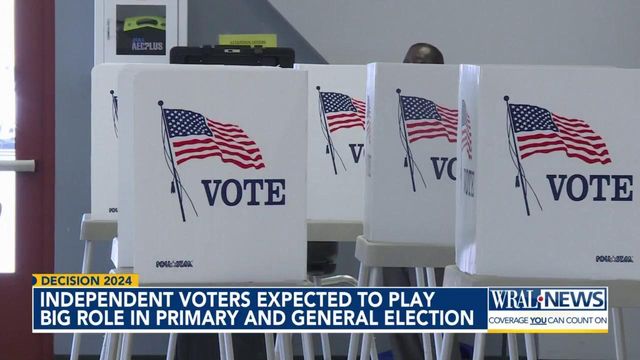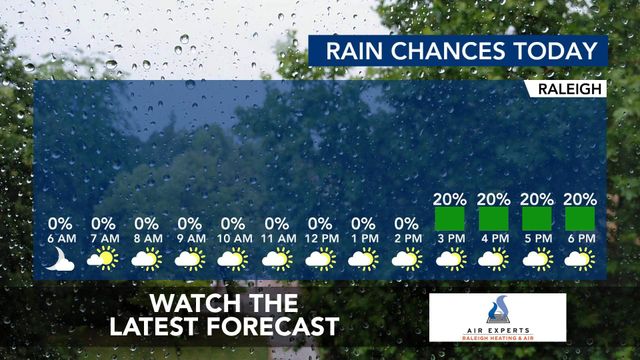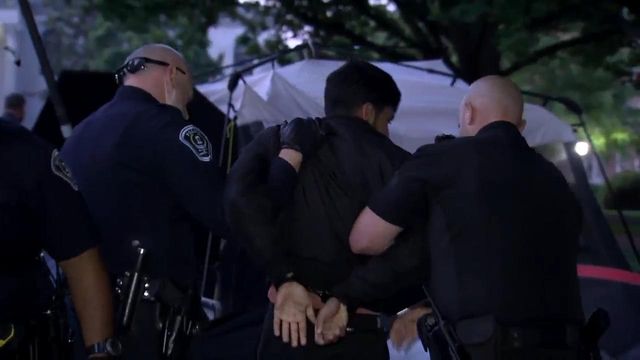Unaffiliated voters expected to play big role in Super Tuesday in NC
The Tar Heel State is one of more than a dozen states participating in primary elections on March 5, known as Super Tuesday.
Thousands of people will cast ballots for presidential, gubernatorial, congressional and legislative candidates, among others.
Unaffiliated voters — who make up the biggest voter bloc in the state — are already looking forward to November.
"In November, we are given the choice. But, [on Super Tuesday] we get to choose," Brian Groesser, a registered unaffiliated voter, said.
According to data from the State Board of Elections, unaffiliated voters are the largest group of voters in the state of N.C., with 2.75 million voters.
The Board of Election said 2.4 million registered voters identified as Democrats and 2.2 million identified as Republicans.
The growth of unaffiliated voters in North Carolina can be attributed in part to newcomers and newly registered voters who don't want to be tied to a particular political party.
Groesser plans to participate in the March 5 primary election but disapproves of the two front-runners for president.
"I'm not going to vote for [President] Joe Biden, and I'm not going to vote for Donald Trump," Groesser said, referring to the November general election. "I would prefer a third-party candidate be available."
Many people across the country said they are undecided on whether or not to vote for Biden in the Democratic primary.
Elbourno, the co-chair of the Abandon Biden campaign, intends on voting “no preference,” which is an option in the Democratic presidential primary on Tuesday.
"We have no preference, we have no interest in you, and we're not going to vote for you," Elbourno said.Some said they plan on voting “no preference” due to the Biden administration's stance on Israel.
Steven Greene, a political science professor at N.C. State University, weighed in on the comparison to Michigan's Feb. 29 primary.
More than 100,000 voters there voted 'uncommitted' in protest to the administration's handling of funding Israel amid the country's war with Hamas.
"Michigan has a large Muslim and Arab-American population,” Greene said. “That's noticeably less the case [in North Carolina], so I don't expect the same kind of impact on that here in the Democratic primary."According to the rules of the Democratic National Convention, any candidate, including “uncommitted,” is eligible to win delegates if they receive either 15% of the statewide vote or 15% of any congressional district.
If an uncommitted receives delegates, the delegates will be selected at the party’s meeting in the spring, meaning the “uncommitted” slot may be filled by a Biden supporter who would cast their vote for him at the convention in Chicago.













